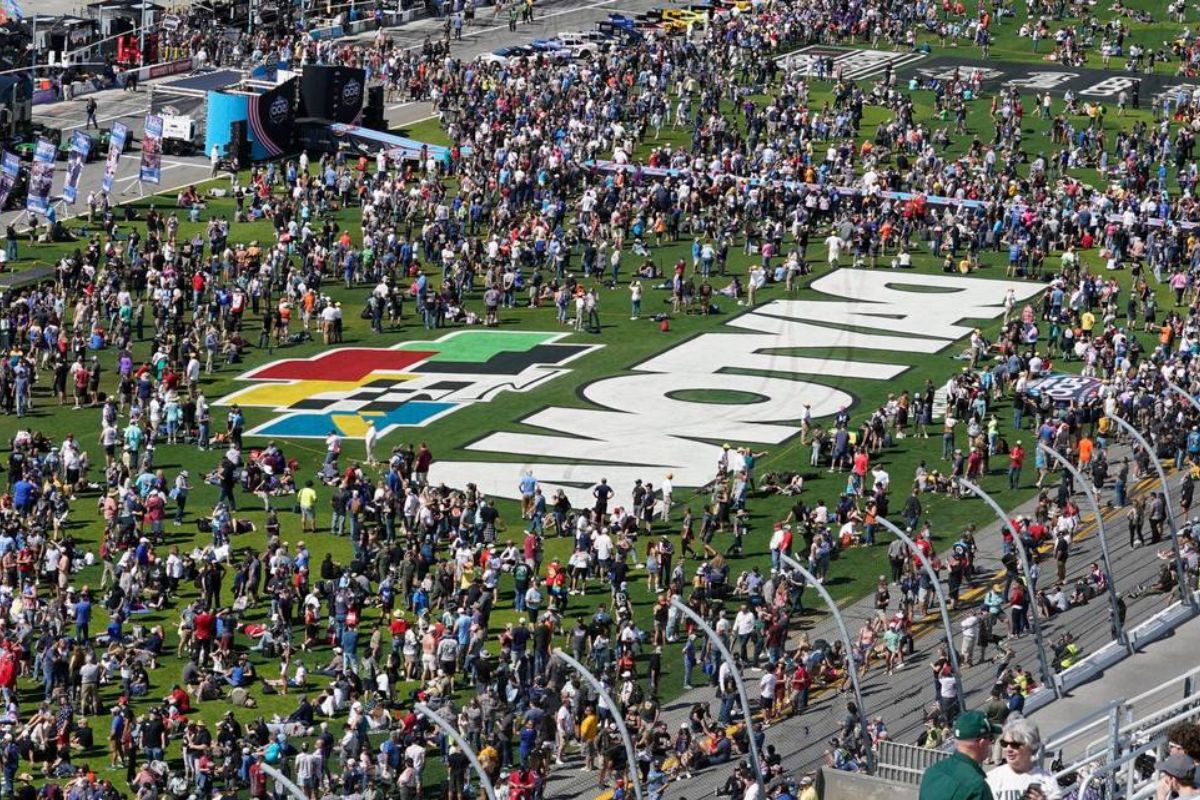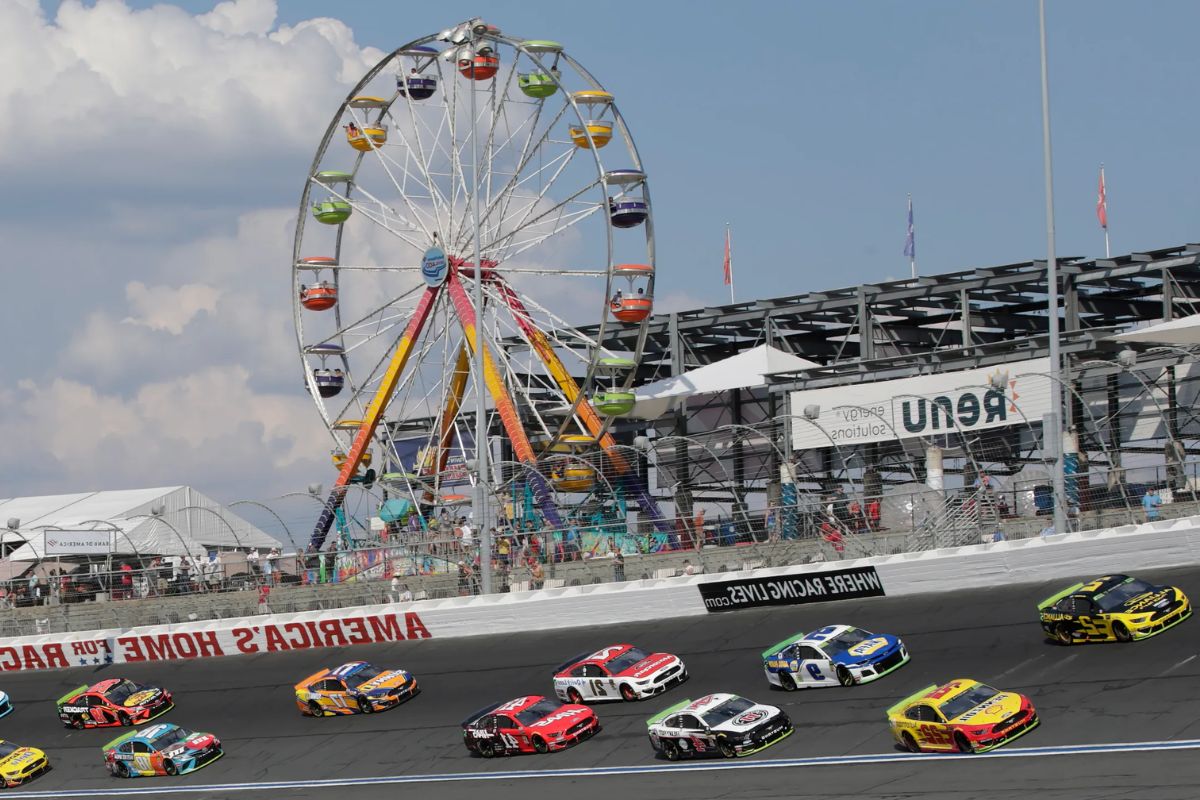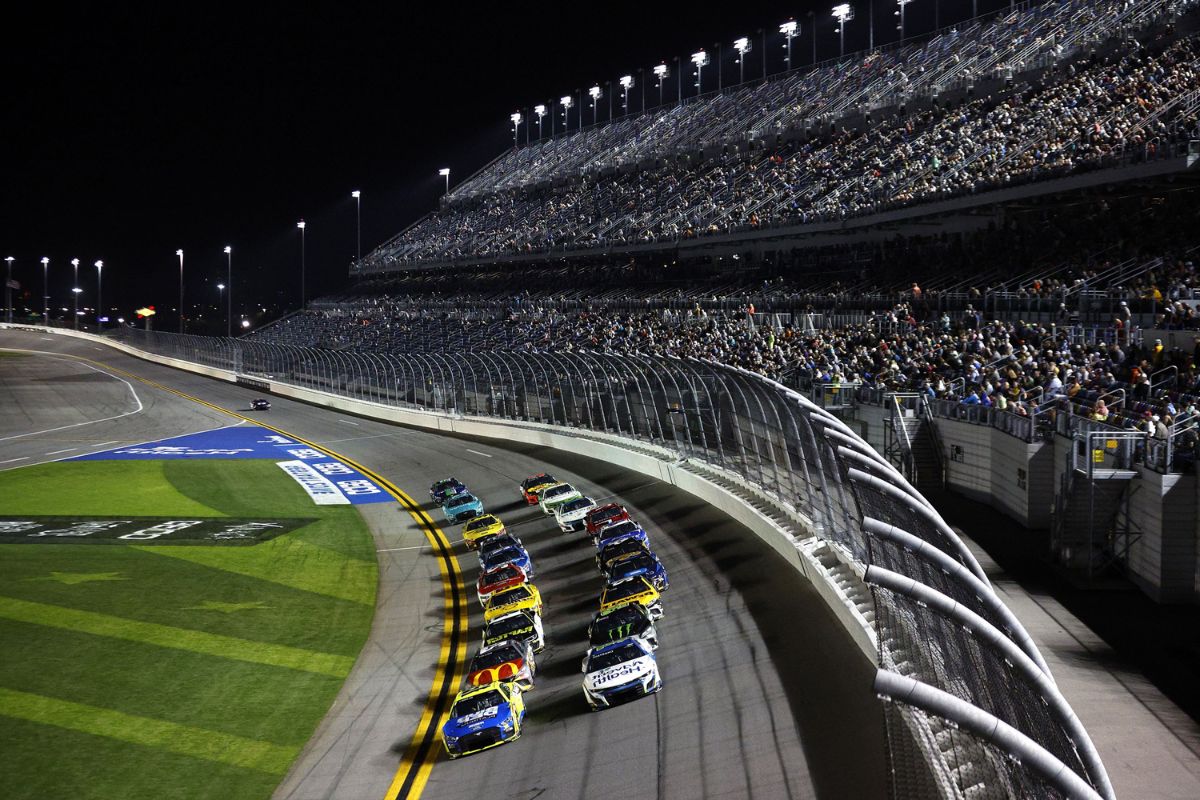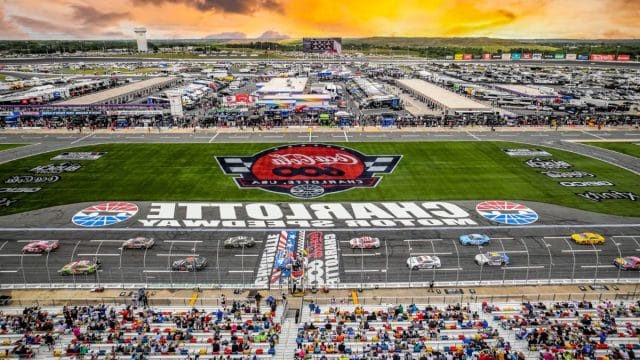NASCAR’s Home Turf Battle: As NASCAR enthusiasts know, the battle for supremacy between Charlotte and Daytona in the realm of stock car racing is a tale as old as the sport itself.
Both cities hold a special place in the hearts of fans, drivers, and teams alike, each boasting a rich history and a unique set of characteristics that make them vital to the sport’s fabric.
Charlotte’s status as the home of many NASCAR teams and the NASCAR Hall of Fame contrasts with Daytona’s iconic Daytona International Speedway and the prestige of hosting the Daytona 500.
The debate over which city truly reigns supreme in the world of NASCAR is a nuanced and captivating discussion that goes beyond mere geography or statistics.
Key Takeaways
- Daytona and Charlotte represent iconic locations pivotal to NASCAR’s history and evolution.
- Daytona’s beach races and the birth of the Daytona 500 showcase its legacy.
- Charlotte Speedway’s role in hosting the Cup Series solidified its position in NASCAR.
- The influence of moonshine roots, like North Wilkesboro Speedway, shaped NASCAR’s early culture.
Birth of NASCAR: Inaugural Race on Daytona Beach in 1948:
Have you ever wondered about the origins of NASCAR and its inaugural race on Daytona Beach in 1948?
On February 15, 1948, NASCAR made history by organizing its first official race on the sandy beaches of Daytona. This monumental event took place following a meeting at the Streamline Hotel rooftop bar, where founder Bill France Sr. laid the foundations for what would eventually become the prestigious Whelen Modified Tour.
The race on Daytona Beach was a pioneering moment in the world of stock car racing, showcasing modified cars that would later evolve into the diverse range of vehicles seen in NASCAR today. The spirit of competition and the thrill of speed were evident right from the start, setting the stage for the growth and development of NASCAR over the decades to come.
As NASCAR enthusiasts look back on that historic day, they can appreciate how far the sport has come since its humble beginnings on the picturesque shores of Daytona Beach.

Evolution of NASCAR: From Beach Races to Premier Cup Series
The transformation of NASCAR from its humble beginnings on the sandy beaches of Daytona to the prestigious Premier Cup Series represents a remarkable evolution in the world of stock car racing. From the first beach race in 1948 to the establishment of the ‘Strictly Stock Series’ in 1949, NASCAR has come a long way. The series, now known as the Cup Series, has seen significant growth and development over the years. Charlotte Speedway, where the inaugural race of the series took place in 1949, holds a special place in NASCAR’s history, marking a crucial milestone in the sport’s evolution.
| Year | Milestone | Significance |
|---|---|---|
| 1948 | First beach race in Daytona | Inaugural event that laid the foundation for NASCAR |
| 1949 | Establishment of the ‘Strictly Stock Series’ | Birth of what would later become the Cup Series |
| 1949 | First race at Charlotte Speedway | Important moment in NASCAR’s history |
| … | … | … |
Daytona vs. Charlotte: The Racing Hubs’ Significance:
With the establishment of the Cup Series at Charlotte Speedway in 1949 and the inauguration of Daytona International Speedway with the Daytona 500 in 1959, NASCAR’s evolution from its beach racing roots to modern racing hubs like Daytona and Charlotte exemplifies a pivotal shift in the sport’s landscape.
Significance of Daytona and Charlotte in NASCAR:
- Historical Roots: Daytona’s beach races in 1948 set the foundation for NASCAR, while Charlotte Speedway’s role in hosting the Cup Series solidified the sport’s presence in the racing world.
- Innovation and Prestige: The Daytona 500’s debut in 1959 marked the beginning of Daytona International Speedway’s legacy as a hub for innovation and the host of prestigious races, elevating NASCAR’s profile.
- Team Headquarters: Charlotte’s emergence as a hub for NASCAR teams and technology developments has made it a central location for many top teams, further solidifying its significance in the racing community.

Daytona’s Legacy: The Birthplace of Stock Car Racing
Daytona’s pivotal role as the birthplace of stock car racing is deeply rooted in the historic Streamline Hotel rooftop bar meeting and the iconic inaugural Daytona 500 held in 1959. This event marked the beginning of a new era in American motorsports, solidifying Daytona Beach as a racing mecca. The meeting at the Streamline Hotel brought together key figures in the racing community, laying the groundwork for what would become NASCAR. The Daytona 500, with its thrilling competition and large spectator turnout, captured the essence of stock car racing and set the stage for future races at the famous Daytona International Speedway.
Interviews with NASCAR personalities like Kyle Petty shed light on Daytona’s lasting impact on the sport. The legacy of Daytona as the birthplace of stock car racing continues to influence drivers, teams, and fans alike. Its rich history and tradition make it a revered location in the world of motorsports, showcasing the passion and dedication of those involved in the sport’s development.
North Wilkesboro’s Moonshine Roots: The Unsung Contender
Nestled in the heart of North Carolina, North Wilkesboro Speedway stands as a testament to the intertwined history of motorsports and the prohibition-era moonshine culture. The speedway, opened in 1947, holds a significant place in NASCAR’s early years, embodying the spirit of innovation and rebellion that characterized the sport’s origins. Despite being overshadowed by larger tracks like Charlotte and Daytona, North Wilkesboro’s roots in moonshining have shaped its identity as an unsung contender in the racing world.
Moonshine Roots of North Wilkesboro Speedway:
- Moonshine Runners Turned Racers: Many early drivers at North Wilkesboro had backgrounds in moonshine running, using their skills to outrun the law and eventually transition into professional racing.
- Influence on Track Design: The layout of North Wilkesboro Speedway, with its tight turns and short straightaways, reflects the winding backroads that moonshiners navigated to evade capture.
- Community Connection: The local community in North Wilkesboro has deep ties to moonshine culture, with many families having stories that intertwine with the area’s illicit past, further adding to the track’s historical significance.
Conclusion of NASCAR’s Home Turf Battle
The rivalry between Daytona and Charlotte as NASCAR’s home turf showcases the rich history and significance of these racing hubs.
Daytona Beach’s legacy as the birthplace of stock car racing contrasts with Charlotte’s evolution into a modern racing powerhouse.
The roots of NASCAR in moonshine culture further add depth to the sport’s history.
The ongoing battle for supremacy between these two iconic locations continues to shape the landscape of professional racing.

Our Reader’s Queries
Q. Why is NASCAR big in Charlotte?
A. For over six decades, Charlotte Motor Speedway has been the benchmark for motorsports entertainment, evolving into the acclaimed “America’s Home for Racing.” Situated in the heart of NASCAR country, this iconic superspeedway stands as the sole race vacation destination where fans can fully engage with the sport by attending thrilling events and experiencing the excitement firsthand.
Q. Is Charlotte a NASCAR city?
A. The vibrant race car culture is deeply ingrained in the fabric of Charlotte and North Carolina, with residents embracing this dynamic aspect of their identity. Charlotte’s renowned status as a hub for race car culture is exemplified by the strategic placement of key institutions within the city. Both the NASCAR Hall of Fame and Charlotte Motor Speedway find their home in Charlotte, further solidifying the city’s integral role in celebrating and fostering the rich heritage of motorsports.
Q. Where is NASCAR home?
A. NASCAR, established on February 21, 1948, stands as a prominent force in motorsports, affiliated with ACCUS-FIA. The organization’s headquarters are strategically located in Daytona Beach, Florida (main), and Charlotte and Concord, North Carolina, U.S. Leading NASCAR is President Steve Phelps, alongside Peter Jung, serving as Vice President and Chief Marketing Officer (CMO).
Q. Why are NASCAR teams based in North Carolina?
A. North Carolina stands as a racing hub with renowned tracks like Charlotte Motor Speedway, often regarded as the “home” of NASCAR. The state’s history boasts significant car manufacturing, hosting numerous NASCAR teams and race shops.
SO READ: Thrills and Spills: Dive Into the 2024 Daytona 500 Schedule!
